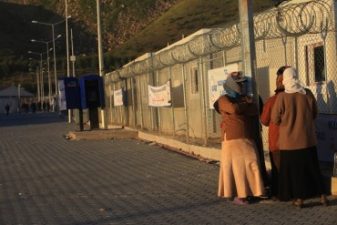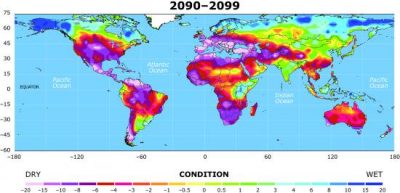 Years of drought and mass displacement in Syria may have been the straw that broke the camel’s back and led to the ongoing uprising
Years of drought and mass displacement in Syria may have been the straw that broke the camel’s back and led to the ongoing uprising
Following the eruption of revolts and riots in 2011 which later became the Arab Spring, the link between food prices and rising political opposition was a difficult one to ignore. The Arab revolutions had been sparked by the actions of a desperate young man who set himself alight in Sidi Bouzid after being forbidden from selling his produce at market. People across the region were also vocally unhappy with the rising price of basic foods and falling wages – in Egypt, loaves of bread were waved in protests to highlight this struggle. The link between climate change related factors and the war in Syria, however, hasn’t been as widely discussed. Yet, drought and ineffective water and agricultural policies are believed to have contributed to the uprisings and should “serve as a warning of the potential impact of climate change on political stability.”
According to an article written by Shahrzad Mohtadi in the Bulletin of Atomic Sciences, “drought tipped the scale of an unbalanced agricultural system that was already feeling the weight of policy mismanagement and unsustainable environmental practices. Further, lack of contingency planning contributed to the inability of the system to cope with the aftermath of the drought. Decades of poorly planned agricultural policies now haunt Syria’s al-Assad regime.”
Between 1990 and 2005, Syria experienced six significant droughts most of which lasted one season. The latest drought, however, took place from 2006 to 2010 and lasted an astounding four seasons- a true anomaly according to Mohtadi, who adds that the longevity meant that farmers weren’t as able to withstand the dry periods by falling back on secondary water resources.
An estimated 1.5 million people were displaced in Syria due to the drought. Entire families were forced to emigrate from Eastern Syria near the Euphrates River that had shrivelled under the five year drought to urban cities. Temporary settlements formed on the outskirts of Damascus, Hama, Homs, Aleppo, and Dara’a — the latter city being the site of the first significant protest in the country in March 2011.
As early as 2001, the World Bank warned that the Syrian Government’s efforts to achieve food security by investing in water-intensive crops such as wheat and also cotton would undermine “Syria’s security over the long-term by depleting available groundwater resources.” Indeed by 2008, the Syrian government was forced to accept that its policy of self-sufficiency had failed and for the first time in two decades it began importing wheat.
“A combination of stress factors resulting from policies of economic liberalization — including growing income disparities and the geographic limitations of the economic reforms — shattered the Syrian regime’s projected image of stability,” explains Mohtadi. “Even if it was not the leading cause of the Syrian rebellion, the drought and resulting migration played an important role in triggering the civil unrest now underway in Syria.”
: Bulletin of Atomic Sciences. Hat tip to The Arabist
: Image of protest against Assad via homeros / Shutterstock.com
For more on Syria and climate change:
Millions Go Hungry In Syria, Libya and Yemen
Syrian Farmers Increasingly Vulnerable
Climate Change Kills 160 Syrian Villages




Male-dominated overpopulation is the core problem. Planet Earth cannot supply enough water to 7 billion people and also supply enough water to the weathering clouds to circle the globe. So unless and until the human race decides to peacefully reduce its population with family planning education and safely recycle 100% of its human-generated waste materials, the drought, wildfires, sudden storms and flash floods will get worse, until famine does what people refuse to do.